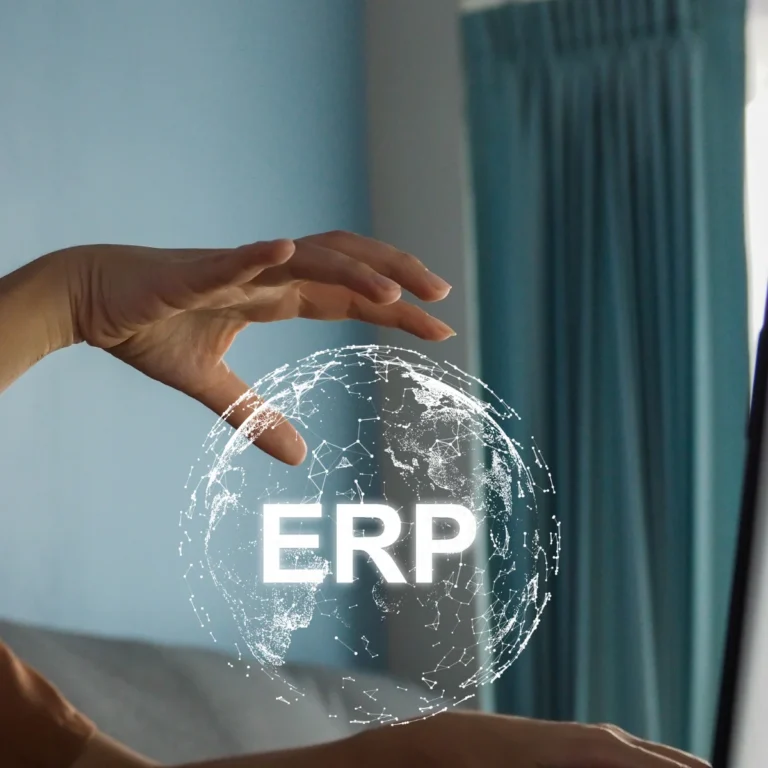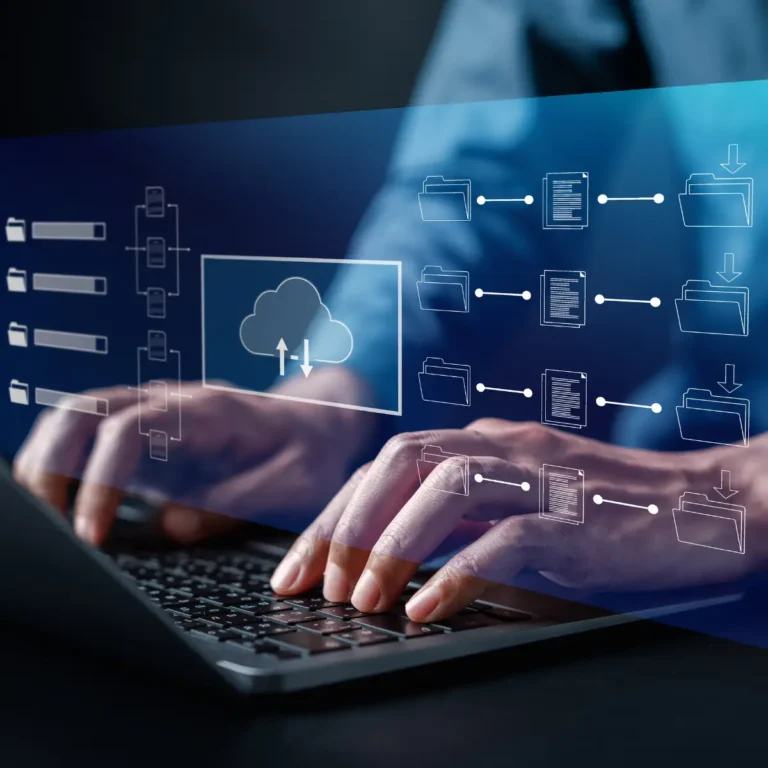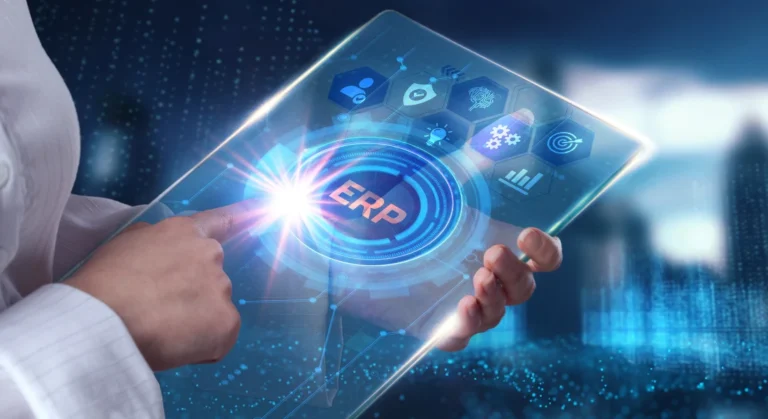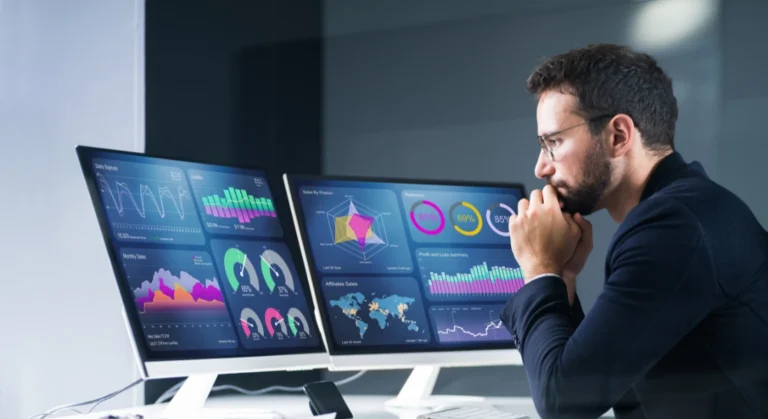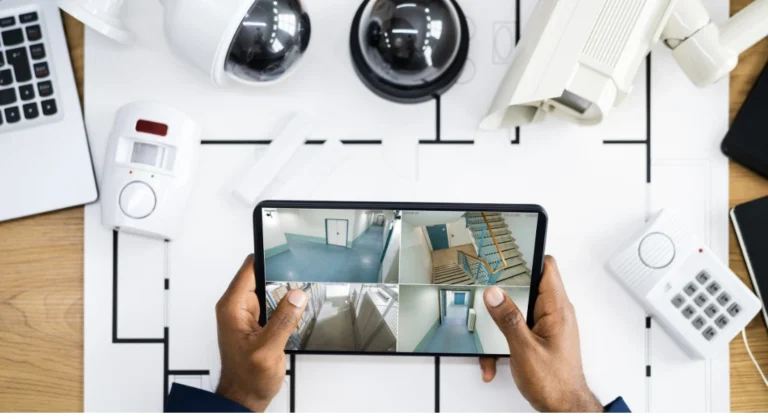Running a business today means juggling too many tools. A CRM for leads, accounting for money, HR for employees, maybe even an eCommerce platform for sales. Each tool is great on its own… until they don’t talk to each other. Then comes the headache: duplicate data, wrong reports, slow approvals.
This is where ERP integration saves the day. And for companies in Dubai, where speed and accuracy can make or break deals, connecting ERP with other apps is no longer just “nice to have.” It’s a must.

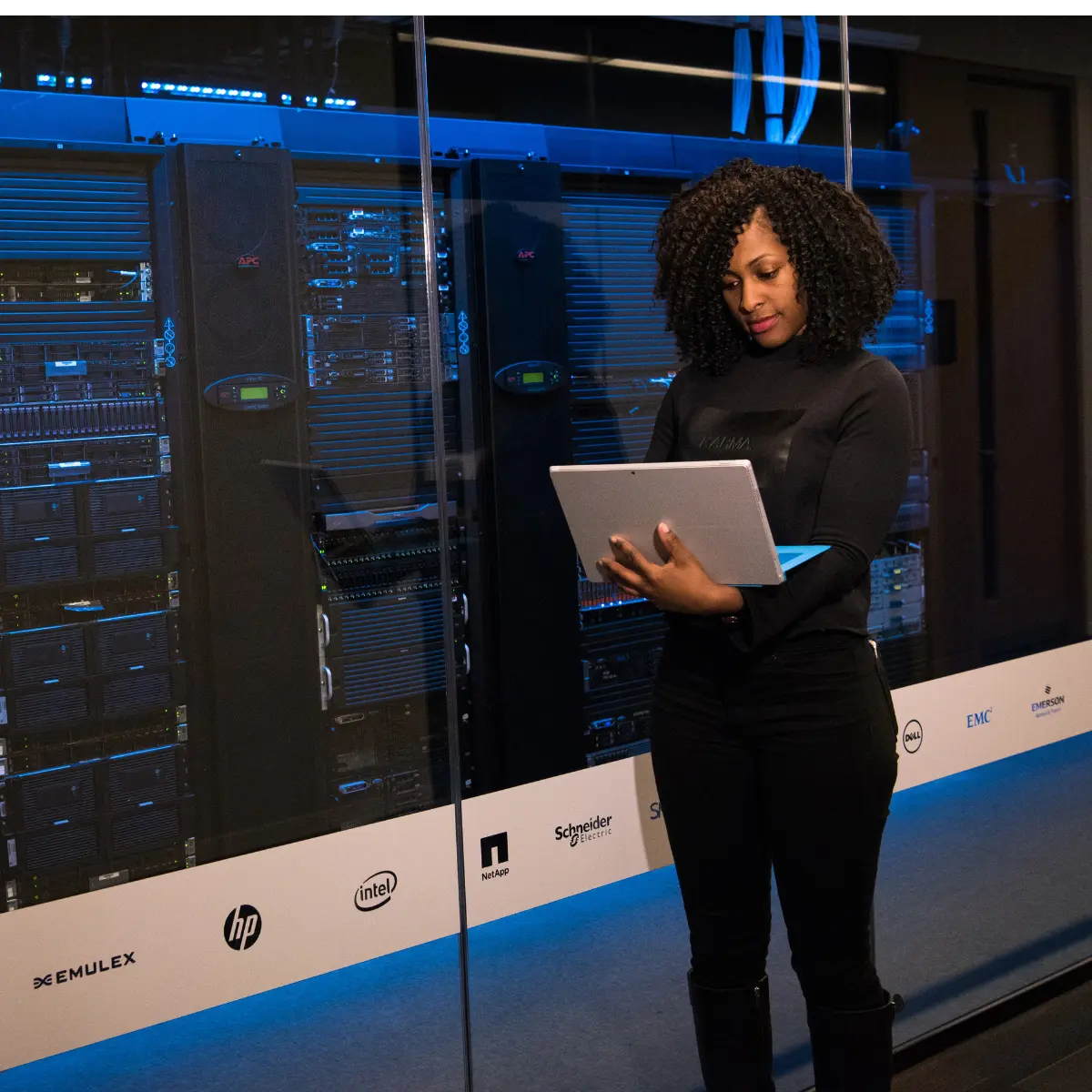
What exactly is ERP integration?
ERP (Enterprise Resource Planning) is meant to manage the big stuff like finance, supply chain, HR, sales & operations. Basically, the heart of a business.
But here’s the catch. Most companies don’t only use ERP. They still use a bunch of other apps. That’s normal.
ERP integration simply means linking your ERP with those other systems so information flows smoothly between them. No more manual data entry. No more back-and-forth emails between finance and HR. Everything syncs in real time.
Think of ERP as the main stage, and integration is the sound system connecting all the instruments.
Why ERP integration does it matter in Dubai?
Some people think that employing an IT firm is expensive. In actuality, it can save you money. An in-house IT department means salaries, training, and ongoing updating of technology. Outsourcing to a Dubai IT Firm gives you the experts without the added cost.
Most IT firms also offer scalable packages. You pay for what you need, which makes it affordable for small businesses, too.
Stay Ahead of the Curve with the Newest Technology
Business in Dubai is fast. Like really fast. Whether you’re in retail, logistics, trading, or even construction, one small delay can cost opportunities.
Here’s why ERP integration makes sense here:
- Saves time – approvals, invoices, and updates move automatically.
- Helps with compliance – ERP software in Dubai comes VAT-ready, so no tax mistakes.
- Smarter decisions – leaders see clear, updated numbers.
- Keeps customers happy – orders and stock are always accurate.
In short, it makes your business run like one smooth machine instead of a bunch of scattered parts.
Big benefits you’ll notice
- No more data silos-
Everyone’s on the same page. Finance, HR, sales… they all see the same info. - Productivity goes up-
Employees stop wasting hours on copy-paste tasks. - Less errors-
Automation means fewer mistakes in finance or reporting. - Real-time insights-
Want to check cash flow or stock levels? You see it instantly. - Ready for growth-
As you scale, integration keeps the process smooth instead of messy.
How does ERP integration actually work?
The process sounds complicated, but it’s not rocket science. It usually goes like this:
- List the systems you use – CRM, HR, eCommerce, warehouse, etc.
- Decide which data needs to flow – like customer orders, payments, or payroll.
- Pick your integration method – APIs, middleware, iPaaS, or custom build.
- Map your data – making sure “customer ID” in one system matches “client number” in another.
- Test and monitor – check if the sync is working without errors.
You don’t have to do everything at once. Many businesses start small and build up.
ERP Integration methods (in simple words)
- Point-to-Point
Direct link between two systems. Easy, but messy if you keep adding more. - Middleware / ESB
Think of it as a hub that connects many systems. Good for larger companies. - iPaaS
Cloud-based tools that connect apps with drag-and-drop workflows. - Custom APIs
For unique needs. Flexible, but can be costly.
Why ERP software in Dubai stands out
Using ERP here has extra advantages:
- Built-in VAT and tax compliance.
- Multi-currency support (a must for global trade).
- Bilingual interfaces – Arabic and English.
- Scalable for fast-growing businesses.
Pair that with integration, and you’re not just managing operations. You’re building a foundation for growth.
Challenges you might face
Let’s keep it real. Integration isn’t always smooth sailing. Some common bumps:
- Initial costs – setup and customization can feel heavy.
- Complexity – old legacy systems don’t always play nice.
- Data issues – if your existing info is messy, it needs fixing first.
- Team pushback – people resist change sometimes.
Working with ERP consultants in Dubai helps a lot. They know the local market, regulations, and common roadblocks.
How long does it take?
It depends.
- Small businesses – 3 to 6 months.
- Mid-sized companies – 6 to 12 months.
- Enterprises – up to 18 months.
- Multi-country rollouts – a couple of years, even.
The more systems you integrate, the longer it takes.
Final thoughts
ERP on its own is powerful, no doubt. But without integration, it’s like a smartphone without the internet, useful, but limited.
For companies in Dubai, where competition is tough and rules are strict, ERP software in Dubai with proper integration is more than just a tool. It’s a growth strategy.
When your systems connect, your teams waste less time, your numbers stay accurate, and your decisions get sharper. That’s how you move from “keeping up” to actually leading the market.


